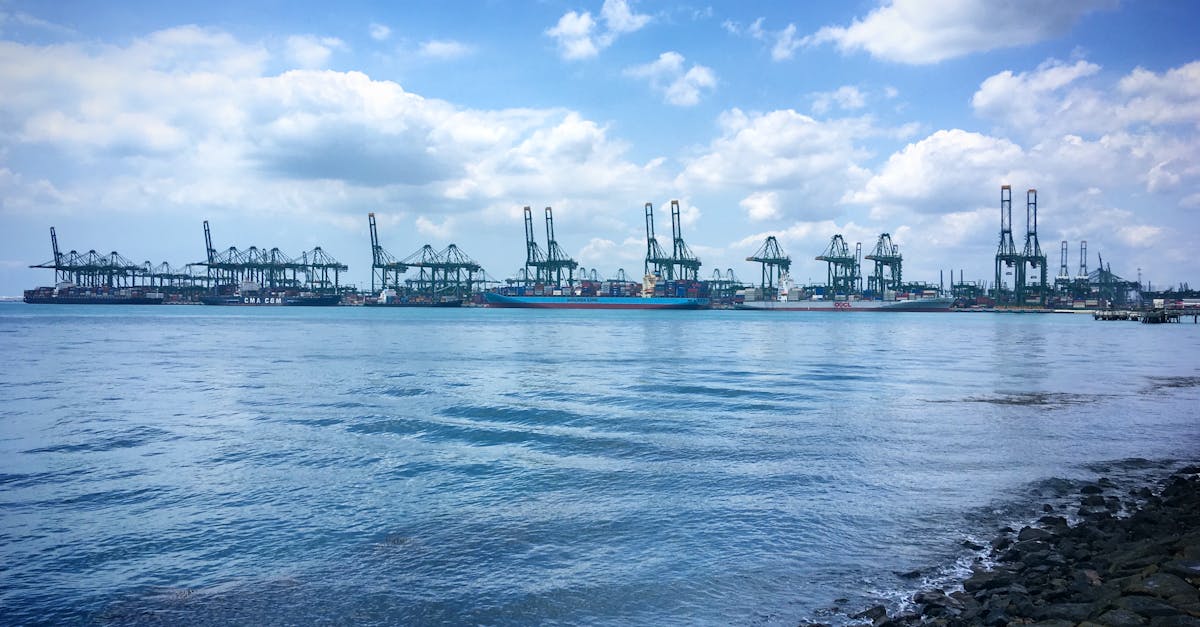Navigating Global Trade Challenges in a Shifting Economy
Introduction
In today's fast-paced world, navigating the intricacies of global trade has become increasingly challenging. The global economy is in constant flux, influenced by geopolitical tensions, technological advancements, and shifting consumer demands. Countries and companies engaged in international trade must adapt their strategies to survive and thrive. With each new challenge comes an opportunity to innovate and optimize trade operations. Understanding the complexities of international markets is paramount for staying competitive. This article explores effective strategies to overcome the hurdles of global trade.
Advertisement
Understanding the Global Trade Landscape
Successful navigation of global trade requires a comprehensive understanding of the current landscape. Factors such as tariffs, trade agreements, and currency fluctuations significantly impact trade dynamics. Recently, the rise of protectionist policies and changing trade regulations have introduced a level of unpredictability in the market. Emerging markets present both opportunities and risks, with companies needing to assess political stability and legal frameworks. By keeping abreast of global economic trends and geopolitical developments, businesses can identify potential threats and opportunities.
Advertisement
Leveraging Technology for Efficiency
Technological advancements have revolutionized the way businesses engage in global trade. From blockchain to artificial intelligence, technology provides tools to streamline operations, enhance transparency, and reduce costs. Automation in supply chain management can lead to more efficient logistics and tracking systems, ensuring timely delivery of goods. On the financial side, fintech solutions can offer quicker, safer cross-border transactions. Companies that harness technology effectively position themselves better in navigating the complexities of international trade.
Advertisement
Risk Management Strategies in Trade
Risk management is a critical component of successful global trade. Businesses must assess and mitigate various risks, including political instability, regulatory changes, and currency volatility. Diversification of suppliers and markets can help minimize exposure to specific regional risks. Encouraging best practices in due diligence and compliance ensures that companies adhere to local and international regulations. Additionally, investing in insurance products can protect against unforeseen disruptions. A robust risk management plan is indispensable in an unpredictable economic environment.
Advertisement
The Importance of Building Relationships
Strong relationships are crucial for thriving in global trade. Businesses can benefit from forging strategic partnerships and collaborations with international players. Networking with industry leaders and participating in trade associations facilitate valuable knowledge exchange. Personal relationships with suppliers and customers can enhance trust and foster long-term collaborations. Building a positive reputation in the international community ensures businesses are well-positioned to seize new opportunities. Collaborative efforts drive innovation and open doors to new markets.
Advertisement
Adapting to Consumer Preferences
Consumer demands are evolving rapidly, driven by technological advancements and changing lifestyles. Understanding local consumer preferences allows companies to tailor their products and services accordingly. Cultural sensitivity in marketing strategies ensures resonance with diverse audiences. Moreover, growing concerns over sustainability require traders to align their operations with eco-friendly practices. Businesses that prioritize customer satisfaction and environmental responsibility gain a competitive edge. Being attuned to consumer trends is vital for thriving in a global market.
Advertisement
Addressing Regulatory Challenges
Navigating the intricate web of global trade regulations can be daunting. Regulatory compliance is essential to prevent legal disputes and ensure smooth operations. Companies must stay informed about changes in international trade laws and standards across different jurisdictions. Engaging with legal experts and trade advisors can provide clarity and guidance through complex regulatory landscapes. Embracing ethical business practices and transparency in operations reinforces compliance. Staying compliant enhances a company's credibility and market standing.
Advertisement
Exploring New Market Opportunities
In a shifting economy, identifying and seizing new market opportunities is crucial. Emerging markets in Asia, Africa, and Latin America offer untapped potential for growth. Conducting thorough market research helps businesses identify regions with increasing demand for their products. Being open to experimenting with new distribution channels and innovative business models can pave the way for expansion. Companies must anticipate market shifts and remain agile. A proactive approach to exploring opportunities ensures sustained success in the international arena.
Advertisement
Fostering Innovation and Creativity
Innovation is the cornerstone of successful global trade in an ever-evolving economy. Encouraging a culture of creativity within organizations can lead to the development of innovative products and solutions. Leveraging data analytics provides insights into market trends and consumer behavior, informing strategic decisions. By embracing change and fostering a spirit of innovation, businesses can remain resilient in the face of adversity. Investing in research and development fuels growth, ensuring companies are equipped to address future challenges.
Advertisement
Conclusion
As international markets continue to evolve, navigating global trade challenges requires strategic foresight and adaptability. Companies must stay informed about economic trends and embrace technological advancements. Building strong relationships and developing comprehensive risk management strategies are crucial for success. By aligning with consumer preferences and maintaining regulatory compliance, businesses can carve a niche in the global market. In a world that rewards innovation and creativity, those who adapt and evolve will flourish in the shifting economic landscape.
Advertisement


